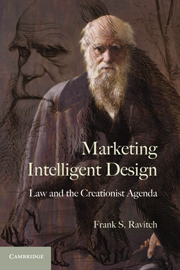Book contents
6 - No Intelligence Allowed or No Intelligible Science?
Published online by Cambridge University Press: 05 June 2012
Summary
The Allegation
“I am being discriminated against in the academic environment because I don't buy into the prevailing theory or methodology in my field and have been engaged in research that calls the prevailing approach deeply into question! Moreover, the established hierarchy in my field is retaliating against me generally so no one will take my work seriously. They are doing this because my work threatens their theories.” Claims like this would and should get the attention of anyone concerned about fundamental fairness and the academic enterprise.
Intelligent design (ID) proponents make exactly this sort of claim. In fact, these allegations of discrimination and retaliation by ID proponents were the subject of a documentary by Ben Stein titled Expelled: No Intelligence Allowed. Of course, these allegations make several assumptions: (1) that the individual's research is actually in the field addressed; (2) that the reason the person is being discriminated against is because the person disagrees with the prevailing theory and methodology, which means that anyone who so disagreed would receive similar treatment regardless of the merits of the research produced; and (3) that the reason for the alleged retaliation is the perceived threat to the prevailing theory or theories (which would be retaliatory) rather than the merit of the research the person has produced (which would be based on the merits of the research, not retaliation).
- Type
- Chapter
- Information
- Marketing Intelligent DesignLaw and the Creationist Agenda, pp. 157 - 200Publisher: Cambridge University PressPrint publication year: 2010



